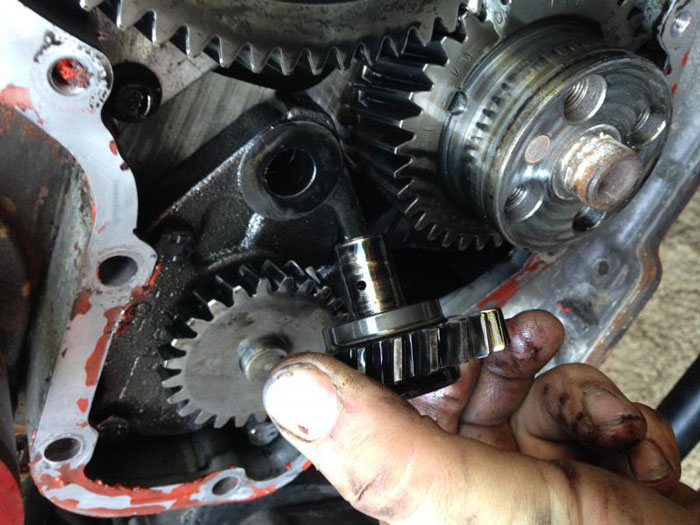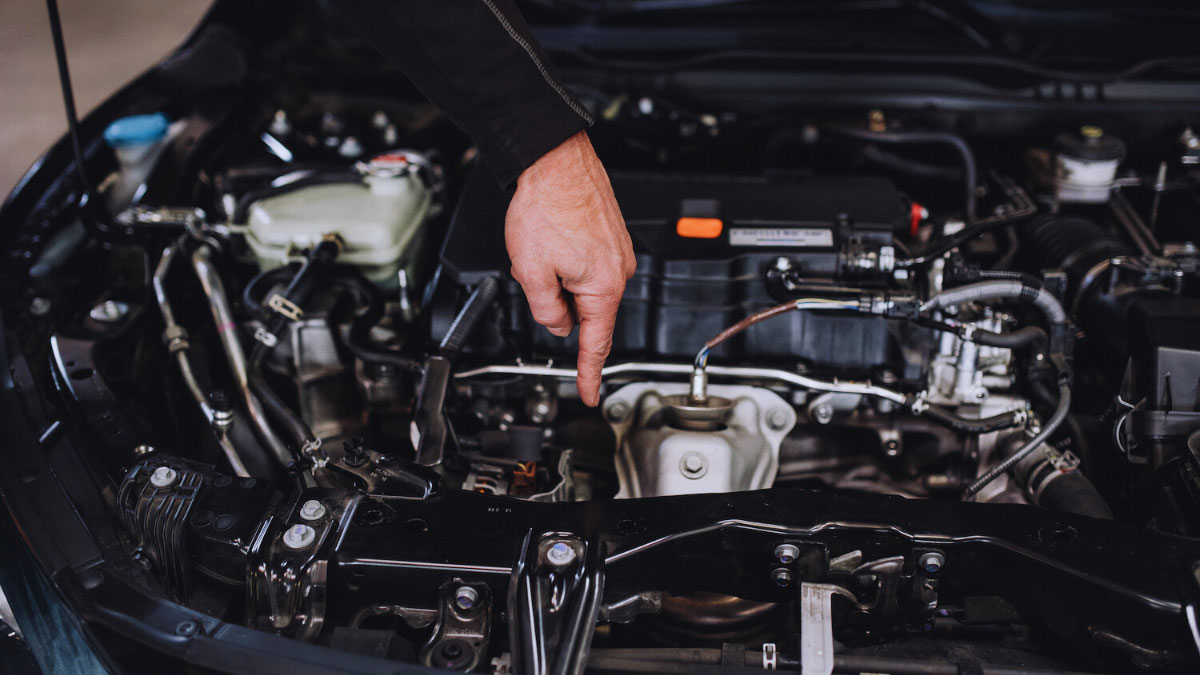If you’ve ever been stranded on the side of the road, you know how crucial it is to keep your car in top shape. One often-overlooked component is the oil pump, a vital part that ensures your engine runs smoothly. Ignoring the signs of a failing oil pump can lead to severe engine damage and costly repairs.
I’ve learned that understanding the symptoms of a bad oil pump can save you from a lot of headaches. In this text, I’ll break down the three most common signs that should set off alarm bells. Recognizing these symptoms early on can make all the difference in maintaining your vehicle’s health and performance.
3 Symptoms of Bad Oil Pump That Should Worry About
Maintaining a functioning oil pump is essential for engine health. Neglecting the symptoms of a bad pump could lead to severe engine damage. Let’s explore the three key signs that should raise concern.
Low Oil Pressure
Low oil pressure often indicates a malfunctioning oil pump. When the pump fails to circulate oil properly, the engine doesn’t receive adequate lubrication. Engines require consistent oil flow for optimal performance.
- Indicator Light: Most vehicles have an oil pressure warning light. If this light activates, it suggests low oil pressure.
- Manual Gauge: Using a manual oil pressure gauge gives more precise readings. Regularly check these readings for any anomalies.
Examples: If the oil pressure warning light appears on your dashboard or the manual gauge shows unusually low readings, it’s time to inspect the oil pump.
Increased Engine Temperature
Engine temperature increases when the oil pump fails. Oil helps to regulate engine temperature by reducing friction and carrying away heat. A faulty oil pump compromises this cooling action.
- Overheating: The coolant system can’t usually compensate for the increased heat alone, causing overheating.
- Temperature Gauge: Pay attention to the engine temperature gauge on your dashboard. Sharp rises often indicate problems.
Examples: Overheating and sharp rises in the temperature gauge signal that the oil pump might be the culprit.
Unusual Engine Noise
Unusual engine noise signifies oil circulation problems. Lack of lubrication results in metal parts grinding together, creating noise.
- Knocking Sounds: Common noises include knocking or clunking from the engine.
- Ticking or Whining: Other sounds may include ticking or whining, especially when the car idles.
Examples: If you hear knocking, ticking, or whining sounds from your engine, suspect an oil pump issue.
Regular maintenance and prompt attention to these symptoms can prevent more severe engine damage. If any of these signs appear, immediate inspection of the oil pump is crucial.
How to Check Your Oil Pump
Monitoring your oil pump’s performance is vital to avoid severe engine damage. To identify issues, you can follow a straightforward process.

Step-by-Step Guide
- Prepare Your Vehicle
Ensure your car is on a flat surface and the engine is cool before starting. - Check Oil Levels
Use the dipstick to verify oil levels are within the recommended range. Inadequate oil can mimic oil pump failures. - Examine Oil Pressure Gauge
Turn on the ignition without starting the engine. Observe if the oil pressure warning light turns off; it shouldn’t stay illuminated. - Inspect for Leaks
Look under the vehicle and around the engine bay for any oil leaks, which can indicate oil circulation issues. - Listen for Noises
Start the engine and listen for unusual noises such as rattling or knocking, which can signal oil pump problems. - Use an Oil Pressure Test Kit
Attach the kit to the engine’s oil pressure port. Compare the readings to the manufacturer’s specified range. Consistently low readings point to potential oil pump failure.
Common Symptoms Identification
- Low Oil Pressure: Check for the oil pressure warning light or gauge readings below normal.
- Increased Engine Temperature: Monitor the temperature gauge for higher-than-normal readings.
- Unusual Engine Noise: Listen for unfamiliar sounds like knocking or ticking.
Professional Assistance
If uncertain or uncomfortable with these steps, consult a professional mechanic. Ignoring symptoms can result in costly engine damage. Seek expert advice promptly to maintain your vehicle’s longevity and performance.
Causes of Oil Pump Failure
Faulty oil pumps can lead to severe engine damage, making it essential to understand the causes behind their malfunction. Recognizing these causes helps in preventing failures and maintaining optimal engine performance.
- Wear and Tear: Over time, oil pumps experience wear and tear. This is natural due to constant mechanical movement. When the pump’s internal gears or bearings deteriorate, it affects its efficiency.
- Contaminated Oil: Contaminated oil can damage the oil pump components. Dirt, debris, or sludge in the oil can clog the pump. As a result, it can’t circulate the oil properly, leading to overheating and further damage.
- Low Oil Levels: Insufficient oil levels can strain the oil pump. Without adequate lubrication, the pump’s components might overheat and break down. Always maintain proper oil levels to avoid unnecessary pressure on the pump.
- Poor Maintenance: Neglecting regular maintenance, such as timely oil changes and using the correct oil grade, can lead to oil pump issues. Regular maintenance ensures the oil pump stays in good working condition.
I recommend addressing these common issues promptly to avoid costly repairs. Always adhere to your vehicle’s maintenance schedule and use high-quality oil to prolong the life of your oil pump.
Preventing Oil Pump Failure
Preventing oil pump failure can save you from expensive engine repairs. Follow these steps to keep your oil pump in good condition.
Maintenance Tips
Proper maintenance practices are crucial for extending the life of your oil pump.
Oil Changes: Regularly changing the oil is the most important step. Contaminated or old oil can increase wear and tear on the oil pump.
Check Oil Levels: Ensure oil levels are consistently optimal. Low oil levels can cause the pump to work harder, leading to premature failure.
Use High-Quality Oil: Investing in high-quality oil provides better lubrication and reduces the likelihood of contaminants causing damage.
Follow Manufacturer Recommendations: Adhere to the maintenance schedule provided by your car’s manufacturer. These schedules are designed to keep all components, including the oil pump, in good working condition.
Regularly perform these maintenance tasks:
- Oil and Filter Changes: Change your oil and filter every 3,000 to 5,000 miles or as recommended.
- Monitor Oil Pressure: Keep an eye on the oil pressure gauge. Low pressure can signal oil pump issues.
- Inspect for Leaks: Regularly check for oil leaks around the engine. Leaks can lead to low oil levels and increased pump wear.
- Clean Engine: Keep the engine clean to avoid debris that can contaminate the oil and cause damage.
By making these maintenance practices a habit, you can prevent oil pump failure and ensure your engine runs smoothly.
Conclusion
Staying vigilant about your vehicle’s oil pump health is crucial for avoiding expensive engine repairs. By adopting good maintenance habits like regular oil changes and using high-quality oil you can significantly extend the life of your oil pump. Monitoring oil pressure and keeping an eye out for leaks also go a long way in ensuring your engine runs smoothly. Following these tips will help you maintain your vehicle’s optimal performance and give you peace of mind on the road.
Frequently Asked Questions
How can I prevent oil pump failure?
Regular oil changes, using high-quality oil, checking oil levels, and following the manufacturer’s recommendations are key. Monitoring oil pressure, inspecting for leaks, and keeping the engine clean also helps.
Why is regular oil change important for the oil pump?
Regular oil changes prevent sludge buildup that can clog the oil pump, ensuring smooth operation and prolonging the pump’s life.
What type of oil should I use?
Always use high-quality oil that meets or exceeds your vehicle manufacturer’s specifications to ensure optimal engine and oil pump performance.
How often should I check my vehicle’s oil levels?
It’s advisable to check your vehicle’s oil levels at least once a month or before long trips to ensure proper lubrication and avoid oil pump issues.
Can an oil leak affect the oil pump?
Yes, an oil leak can lead to low oil levels, causing the oil pump to work harder and eventually fail, so promptly fixing leaks is crucial.
How does monitoring oil pressure help?
Monitoring oil pressure can alert you to potential issues early, allowing you to address them before they cause significant damage to the oil pump or engine.
What should I do if my oil pressure light comes on?
Immediately check your oil levels and top up if necessary. If the light persists, consult a mechanic to avoid potential oil pump and engine damage.
Is it necessary to follow the manufacturer’s maintenance schedule?
Yes, following the manufacturer’s maintenance schedule ensures that your oil pump and engine receive timely care and can prevent costly repairs.
How can I keep my engine clean?
Regularly inspect for leaks, clean the engine bay, and use quality oil and filters to minimize contaminants and prolong the oil pump’s life.

